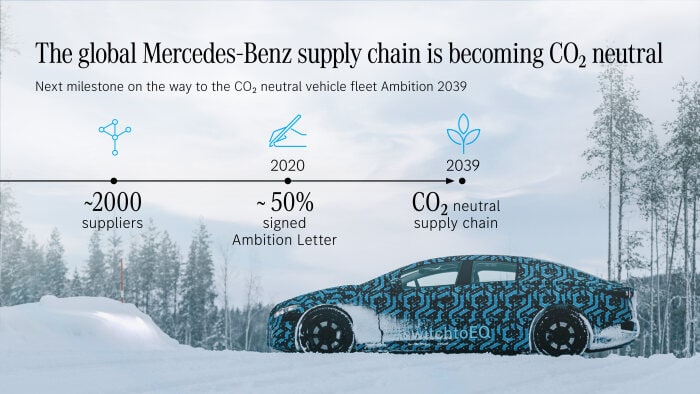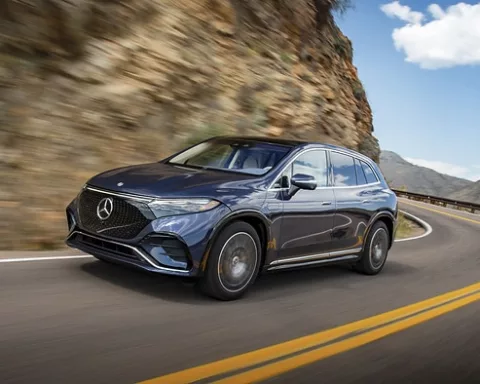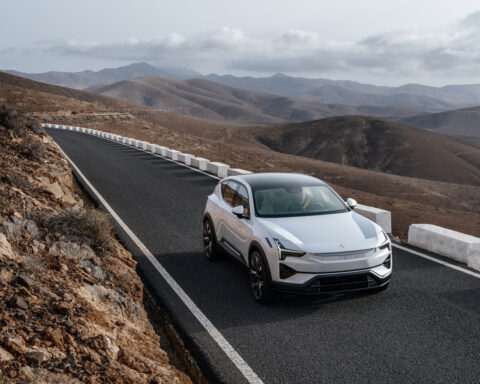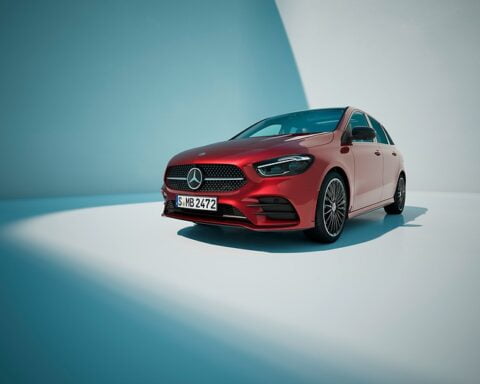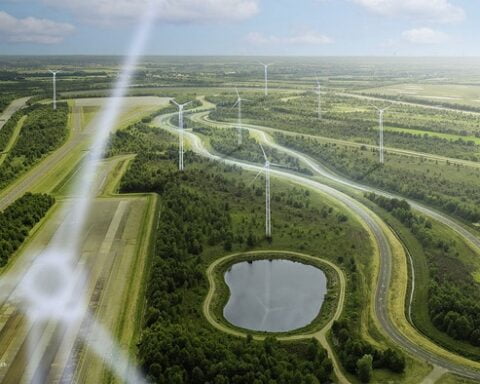- Markus Schäfer, Member of the Board of Management of Daimler AG and Mercedes-Benz AG; responsible for Daimler Group Research and Mercedes-Benz Cars COO: “With the electric EQS luxury sedan, which is already in the starting blocks for next year, we have already achieved important milestones in close cooperation with our partners – for example by purchasing CO2 neutrally produced battery cells. We are consequently pursuing this path: When awarding contracts for our subsequent electric vehicle platform – Mercedes-Benz Modular Architecture (MMA) for compact and medium-sized cars- we are already applying CO2 as a key criterion for the first time consistently.”
- Gunnar Güthenke, Head of Procurement and Supplier Quality, Mercedes-Benz Cars: “Almost half of our approximately 2000 suppliers have signed an ‘Ambition Letter of Intent’ and are committed to supplying us with only CO2 neutral parts in the future. These companies account for more than half of the annual purchasing value of Mercedes-Benz AG.”
Stuttgart, Germany. With Ambition 2039 Mercedes-Benz wants to offer a CO2 neutral new car fleet in less than 20 years. The transformation to electric mobility in particular increases the energy demand in the supply chain. Compared to a conventional combustion engine, the production of an all-electric vehicle is twice as CO2 intensive, mainly because of the lithium-ion batteries. Despite a higher energy demand in production, Mercedes-Benz plug-in hybrids and electric vehicles offer a clear advantage in terms of CO2 emissions compared to conventional drives already today, since only when the entire life cycle of the vehicles is considered a realistic picture emerges: Electric vehicles can make up for a large part of the initially higher CO2 emissions from the upstream value chain due to their emission-free driving. This is where Mercedes-Benz comes in and works with the global supplier network to reduce CO2 emissions in the production phase.
Markus Schäfer, Member of the Board of Management of Daimler AG and Mercedes-Benz AG; responsible for Daimler Group Research and Mercedes-Benz Cars COO: “Electric mobility and sustainability go hand in hand for Mercedes-Benz. With the electric EQS luxury sedan, which is already in the starting blocks for next year, we have already achieved important milestones in close cooperation with our partners – for example by purchasing CO2 neutrally produced battery cells. We are consequently pursuing this path: When awarding contracts for our subsequent electric vehicle platform – Mercedes-Benz Modular Architecture (MMA) for compact and medium-sized cars – we are already applying CO2 as a key criterion for the first time consistently.”
Key criterion for supplier selection
“Together with our partners, we are implementing the Mercedes-Benz Ambition 2039. Almost half of our approximately 2000 suppliers have signed an ‘Ambition Letter of Intent’ and are committed to supplying us with only CO2 neutral parts in the future. These companies account for more than half of the annual purchasing volume of Mercedes-Benz AG. This is an important proof point on the way to achieving our climate goals: our supplier network has also recognised the signs of the times, and is following the transformation. We place an additional focus on particularly CO2-intensive components and materials such as battery cells,” says Gunnar Güthenke, Head of Procurement and Supplier Quality, Mercedes-Benz Cars. “We are also in the process of setting up a tracking system that will enable us to see how CO2 emissions are reduced over time.” The company is in close dialogue with all other suppliers to jointly develop strategies for CO2 reduction.


